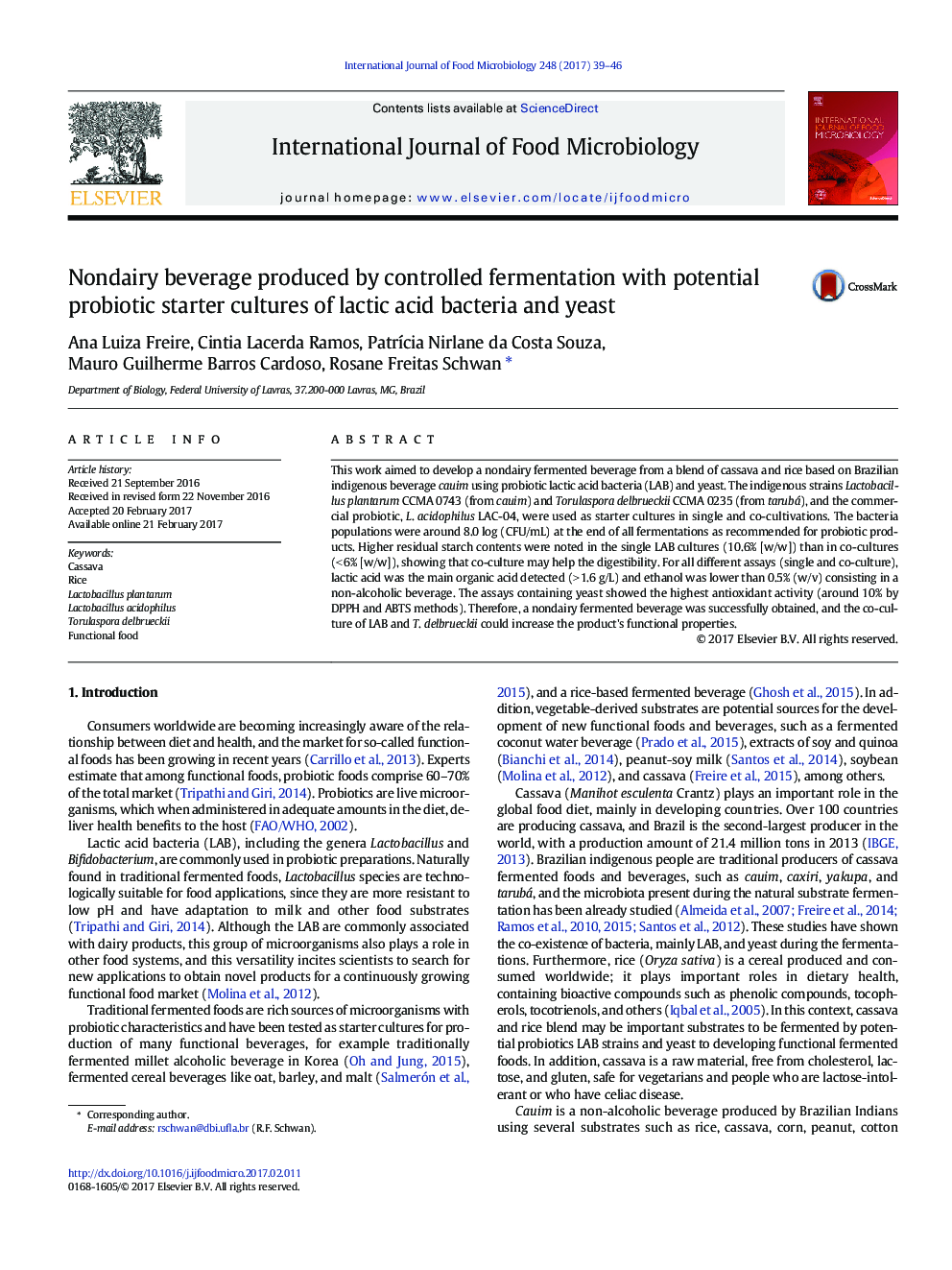| کد مقاله | کد نشریه | سال انتشار | مقاله انگلیسی | نسخه تمام متن |
|---|---|---|---|---|
| 5740788 | 1616535 | 2017 | 8 صفحه PDF | دانلود رایگان |
- A nondairy beverage was developed by co-culture fermentation of LAB and yeast.
- LAB from fermented indigenous food of Brazil was characterized as potential probiotic.
- Final cassava and rice-based beverage presented functional properties.
This work aimed to develop a nondairy fermented beverage from a blend of cassava and rice based on Brazilian indigenous beverage cauim using probiotic lactic acid bacteria (LAB) and yeast. The indigenous strains Lactobacillus plantarum CCMA 0743 (from cauim) and Torulaspora delbrueckii CCMA 0235 (from tarubá), and the commercial probiotic, L. acidophilus LAC-04, were used as starter cultures in single and co-cultivations. The bacteria populations were around 8.0 log (CFU/mL) at the end of all fermentations as recommended for probiotic products. Higher residual starch contents were noted in the single LAB cultures (10.6% [w/w]) than in co-cultures (<Â 6% [w/w]), showing that co-culture may help the digestibility. For all different assays (single and co-culture), lactic acid was the main organic acid detected (>Â 1.6Â g/L) and ethanol was lower than 0.5% (w/v) consisting in a non-alcoholic beverage. The assays containing yeast showed the highest antioxidant activity (around 10% by DPPH and ABTS methods). Therefore, a nondairy fermented beverage was successfully obtained, and the co-culture of LAB and T. delbrueckii could increase the product's functional properties.
Journal: International Journal of Food Microbiology - Volume 248, 2 May 2017, Pages 39-46
